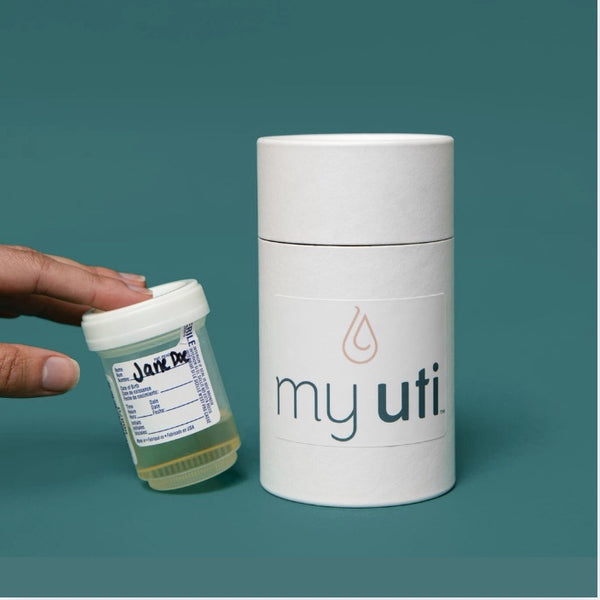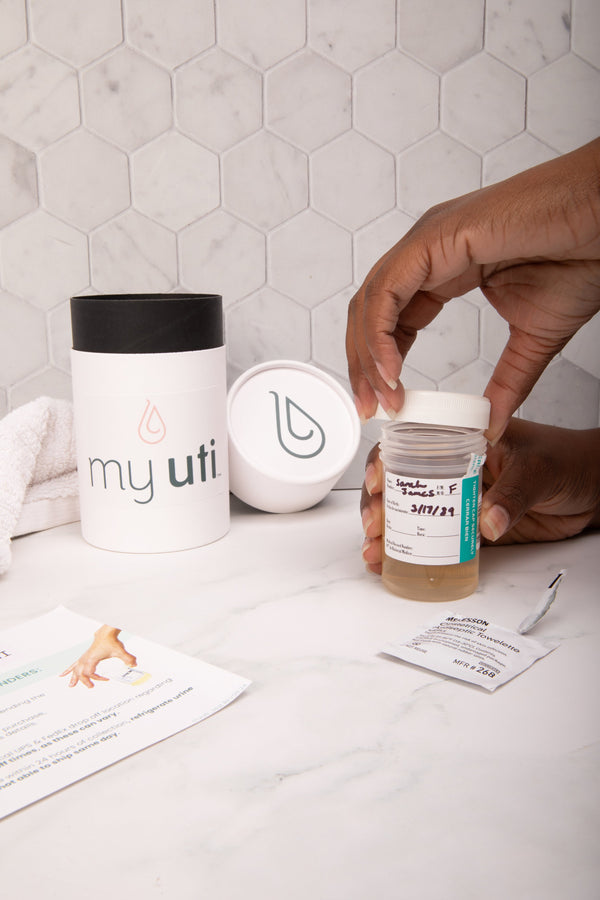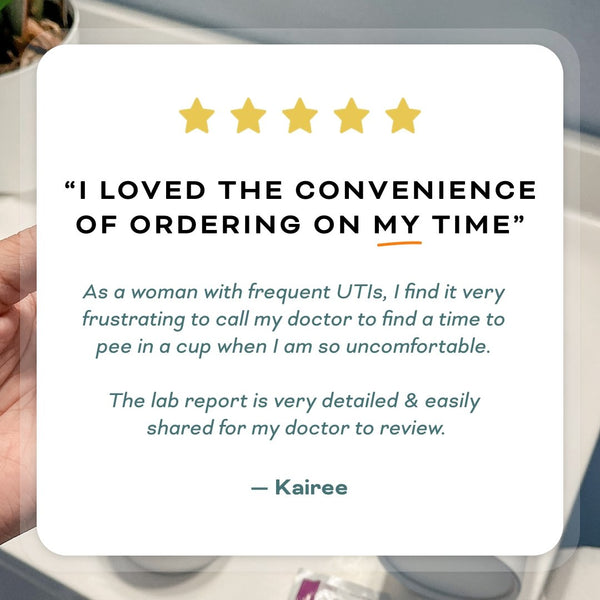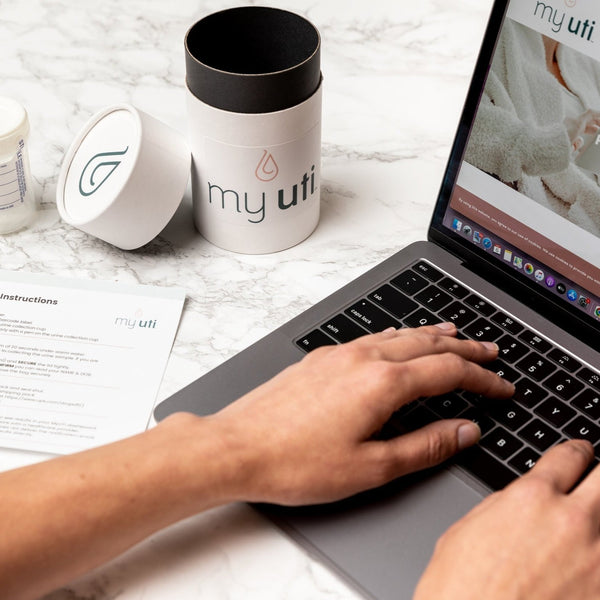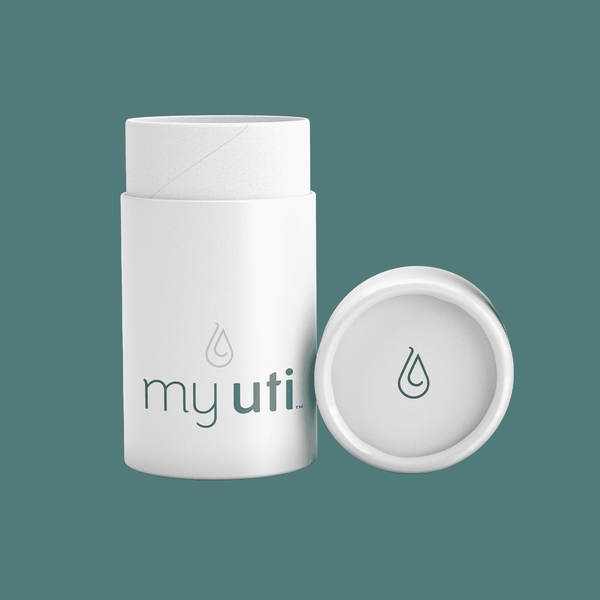Birth Control and UTIs: Can Nuvaring Cause a UTI?
Feb 14, 2023
Did you know that over half of women have had at least one urinary tract infection at some point in their lives? UTIs (urinary tract infections) develop when bacteria enter the urinary system. These infections target the urethra, ureters, kidneys, or bladder.
Many factors may put you at a higher risk of contracting a UTI. These factors include some birth control types. This brings us to the question – “can Nuvaring cause UTI?”
NuvaRing serves as a birth control ring inserted in the vagina. It helps prevent pregnancy by gradually releasing hormones in the body. Read on if you’d like to know whether this flexible ring can increase your risk of getting a UTI.
How NuvaRing Works
What is NuvaRing and how exactly does it work? NuvaRing is among the popular birth control products in the market today. It takes the form of a flexible ring.
If you are looking for help on how to use NuvaRing, it is pretty straightforward, you insert a single ring into the vagina and it stays in place for a maximum of five weeks. Depending on the chosen ring schedule, you may remove the old one and insert a new one every month.
NuvaRing also helps skip menstrual cycles without any complications. It is also 93% effective in preventing pregnancies.
The birth control ring helps stop sperm from fertilizing an egg. Like family planning pills, it contains progestin and estrogen that facilitate this function.
When you wear NuvaRing inside your vagina, your body will absorb the hormones it releases through the vaginal lining. In turn, these hormones stop the ovulation process and prevent fertilization.
Can NuvaRing Cause UTI?
Before exploring the link between NuvaRing and UTIs, it’s important to understand what causes UTIs. The vaginal microbiome contains good & bad bacteria to keep the pH levels balanced. However, factors like sex, sperm, lubricants, tampons, and pads can throw off the pH balance which can then disrupt the vaginal ecosystem.
When this happens, the good bacteria are destroyed. The loss of the natural balance may result in the growth of harmful bacteria. And increase your risk for a UTI or other vaginal infections
While NuvaRing may trigger vaginal discharge, it rarely causes UTIs.The connection with UTIs and NuvaRing is more closely tied to the insertion process. Inserting the ring inside your body with dirty hands is one of the causes of UTIs.
Lastly, one thing to also consider, the ring can cause discomfort during penetration/sex or when using toys for some women.
Types of Birth Control That Put You at Risk of a UTI
Birth control products are designed to prevent pregnancies, however they can impact the vaginal pH, harbor bacteria or kill the good bacteria in the vaginal microbiome. So it may have a connection to causing UTIs. Here's a list of contraceptives you should avoid for the sake of your vaginal health if you're susceptible to UTIs:
-
Cervical Caps
-
The caps act as a barrier for sperm that tries to enter the uterus. Though they are quite similar to diaphragms, they are relatively smaller. They also fit snugly on the cervix.
-
-
Diaphragms
-
A diaphragm (which takes the form of a silicone cap) helps create a barrier between the sperm and the uterus. When inserted in the vagina, it fits on the uterus opening.
-
-
Spermicide
-
A spermicide is a suppository, foam, gel, or cream that kills sperm. It also helps block sperm from reaching the cervix. You can use the product alone or pair it with condoms, cervical caps, or diaphragms for better outcomes.
-
-
Spermicide Condoms
-
These condoms come coated with spermicide. When worn during intercourse, they kill sperm and stop the fertilization process.
-
Risk Factors for UTIs
Knowing the risk factors is crucial to reduce your risk of catching a UTI. For many individuals, sexual activity is a trigger for a UTI and the birth control methods discussed above may also make you prone.
Don’t use scented pads, tampons, deodorants, and douches as they disrupt the natural vaginal pH level, facilitating bacterial growth.
Wiping your vulva and labia from back to front can increase your vulnerability to a UTI. This is because doing so introduces bacteria into the urethra from the anus.
One tip that is commonly shared, is to pee immediately after sex to reduce the risk of bacteria entering the urethra and making its way to the bladder. Doing this helps flush out germs from the urinary tract. Other risk factors include pregnancy hormones, menopause, and a weakened immune system.
What Birth Control Options Do You Have?
After learning the birth control methods that can make you prone to a UTI, you need to weigh your options carefully. If you are prone to UTIs, speak to your physician about the methods that may suit your reproductive health and situation.
Besides family planning pills, you may use an IUD (intrauterine device) or Depo-Provera shot, a birth control patch, and a contraceptive implant.
The responsibility isn't just for females. Other options include condoms or vasectomy (for a male partner).
When to Seek Expert Medical Attention
Once you notice any symptoms of UTIs, you need to consider testing to confirm the infection. The symptoms may include frequent urination, burning sensation or pain when urinating, and fever. Abdominal pain or pressure, bloody urine, and a frequent urge to urinate also suggest an infection.
Depending on where you go for treatment, testing may occur in the doctor's office with a UTI dipstick or the urine sample will be sent to a lab. Based on your test results, your doctor may prescribe an antibiotic treatment. Antibiotics are highly effective and are only taken for a few days.
But if the UTI develops into a serious infection that has moved to your kidneys the physician will recommend other medications. They may also have you hospitalized if there are any complications.
Also, try some home remedies. For instance, make a habit of drinking lots of water to help flush out harmful bacteria. Also, avoid drinks containing irritants like citrus, alcohol, or caffeine.
Get an At-Home UTI Test Kit Today
We hope this guide helped answer the question “can NuvaRing cause UTI?”
If you have been experiencing recurrent UTIs and believe it might be connected to your birth control, speak to your physician about the suitable options. In the meantime, stay away from products with spermicides, and using cervical caps and diaphragms.
Make MyUTI.com your first-stop online shop for an at-home UTI test kit. The PCR test gives a clearer view of the bacteria that causes repeat UTI and recommends personalized treatment.
Order MyUTI Test from our online store today.



